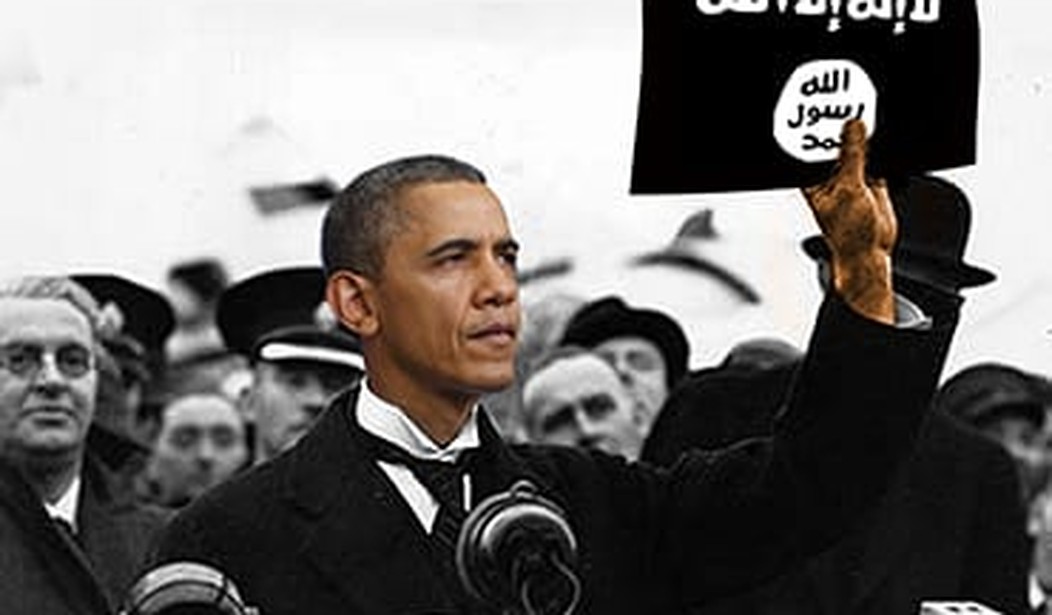You would think by now—post Orlando and San Bernardino—that Barack Obama’s refusal to name “radical Islam” or even “Islamism” as the enemy has reached the level of a cognitive disorder. But it is not that. It remains quite deliberate.
But I don’t believe for a minute his (and Hillary Clinton’s) professed explanation—that naming our adversaries would only inflame them. How much more inflamed could they get? This weekend’s horrific event in Orlando is only the tip of a global iceberg. Not including the 50 (so far) dead from the Pulse gay bar shooting, there have been 60 documented attacks during this year’s Ramadan alone with 472 dead—and Ramadan is only seven days old (eight with Orlando). Total deadly terror attacks in the name of Allah since 9/11 now stand at 28,576 with who-knows-how-many corpses.
Nor, of course, do I think Obama was trying to do me a favor by promoting my book on moral narcissism coming out Tuesday, although the president is possibly the most morally narcissistic individual ever to inhabit the White House. He thinks he knows better than all of us—and the fruits of his moral narcissism are on the bloody floor of Pulse. (Gays should remember how Obama and Clinton “evolved” to favoring gay marriage, ten years or more after such Republicans as Arnold Schwarzenegger and, yes, Donald Trump. Knowing who your friends are is not always simple.)
No, Obama’s refusal to name radical Islam stems from two closely entwined factors—an enduring distaste for American power and deep personal shame (not that buried, but buried enough) of his own profound childhood connection to Islam. Not to get too psychoanalytic, to Obama, if there is something wrong with Islam, there is something wrong with him. Better to think there is something wrong with us.
This is especially true since lurking beneath the failure to name “radical Islam” is a slippery-slope problem — the distance to actual Islam. Obama certainly knows this. We all do. The elephant in the proverbial room is that Islam, as a religion and political ideology, has made only paltry attempts at reformation since the Middle Ages, the most notable exception being Kemal Ataturk — whose efforts have now been almost entirely erased by the president’s onetime buddy, the Islamist near-dictator Recep Erdogan. (Why would Obama have been attracted to such a person in the first place?)
The fruits of Obama’s psychological confusion are writ large in the rampages of ISIS, once the jayvee team, but even more dangerously in his “Iran deal” (scare quotes deliberate). Much has been written of late of this bizarre, unsigned arrangement with the mullahs, including a lengthy David Samuels profile of Obama’s “main man” Ben Rhodes in the New York Times Magazine that made clear how Rhodes and Obama manipulated the press to keep Congress (and the American people!) far away from the facts and truth of the deal. A remarkable article by David Hazony — “The Mind of the President” — in the new issue of The Tower takes this further, detailing how Obama indeed thinks he knows better than we do. (Hazony and I obviously think along similar lines, although Hazony, perhaps, gives more credit to Obama’s supposed rationality than I.) In a section titled “It Must Be Hard to Know Everything,” Hazony writes:
Yet the failure to appreciate the human spirit in politics is not just a bug of Obama’s psychology; it’s a feature of his worldview. It is a flaw in the vision itself, a view of human history that has long been rendered foolish by history itself. This view sees an end to war that comes from overcoming underlying “real problems”—irrationality, tribalism, ignorance, pride, religion, attachment to the past—all of which will eventually be overridden through education and systems of governance based on international law, trade, and multilateralism. And since reason teaches that people should just get along, we don’t need antiquated concepts of the warrior spirit, bravery, loyalty, or the classic calculus of power, credibility, and deterrence.
Nor do we have to call “radical Islam, radical Islam.” Or, as George Orwell put it in the ever-prescient Animal Farm: “No one believes more firmly than Comrade Napoleon that all animals are equal. He would be only too happy to let you make your decisions for yourselves. But sometimes you might make the wrong decisions, comrades, and then where should we be?”
Roger L. Simon is a prize-winning novelist, Academy Award-nominated screenwriter and co-founder of PJ Media. His next book – I Know Best: How Moral Narcissism Is Destroying Our Republic, If It Hasn’t Already – is about to be published by Encounter Books on June 14, 2016. You can read an excerpt here. You can pre-order the book here.









Join the conversation as a VIP Member